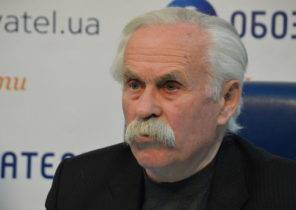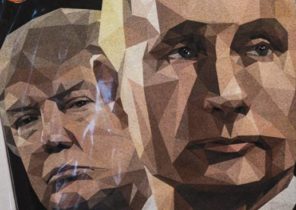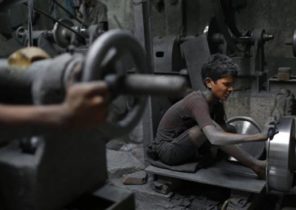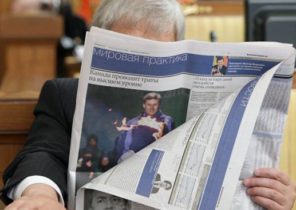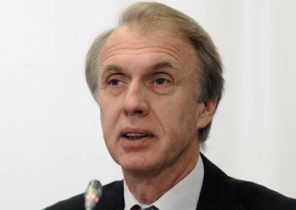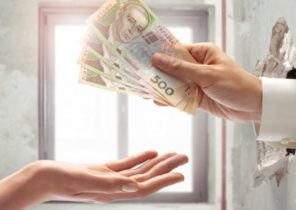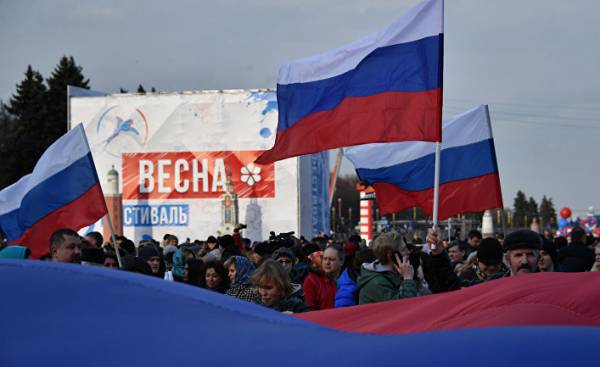
Vladimir Putin himself on weekends we visited the famous Sparrow hills in southwest Moscow. The festival called “Spring” in honor of the annexation of the Crimea Peninsula three years ago, he willingly gave the common people. And he danced and drank from Moscow to Novosibirsk and from Murmansk to Vladivostok on the Pacific ocean.
It should not be surprising. Exactly three years after the annexation, the absolute majority is full of satisfaction and joy over the fact that you are finally reunited that, in their opinion, was always meant to belong to each other. In Russia they say about the public consensus about the Crimea.
Moreover, according to the survey of the Institute for the study of public opinion VTSIOM 78% are of the opinion that the annexation went to the benefit of Russia and not harm. Such a great conviction was still never. That it has benefited the most Crimea, say 89%. Only 13% say that violating the norms of international law gamble has harmed Russia.
For movement in Russia under the slope there are several reasons
The results of the surveys at least staggering. Because from a purely economic point of view, the annexation and subsequent external economic imbalances — especially the Western sanctions have caused serious damage to the Russian economy.
However, they have not responded in the first place because the country experienced a two-year recession and the deepest crisis since Putin came to power a year and a half desacetylation ago. However, they in any case have strengthened Russia’s movement under a bias, which is due to structural economic crisis and was even accelerated the fall in oil prices since mid-2014.
Even Putin’s press Secretary Dmitry Peskov admitted the other day that due to the annexation of Crimea, the Russian economy had problems. “Those are the challenges, the price that we all really need to pay more,” he said in an interview with the publishing house RBC. “High is this price? I would say that it is commensurable with the forces and possibilities of Russia”.
As to the facts, according to public estimations, they amount to half a trillion rubles (almost eight billion euros), which has flowed from the Russian budget over the past three years on the Peninsula.
No sharp increase after three years of difficult period
This one and a half times more than the regional GDP of Crimea in 2015. The budget for the 65% subsidized by Moscow is annually more than one billion euros. More dependent on Moscow are a crisis of the North Caucasus regions of Chechnya, Ingushetia and Dagestan.
During the commodity boom, when the Russian economy grew annually up to 7% or more, this is not worth to say. However, after three years of difficult period, the economy again this year, began to grow — the Ministry of Finance expects even growth from 1.5% to 2%. But this growth is not expected. And the Crimea is not the only geopolitical project that is Russian money.
In addition, while not seen rapid abolition of Western sanctions, some in Russia had hoped after the inauguration of US President Donald trump. Thereby shall remain in force and retaliatory sanctions — an embargo on Western agricultural products.
In addition, each citizen loses in a year 4,400 rubles only because of the embargo, as evidenced by the recent monitoring of the Russian presidential Academy of National Economy. Per year this amounts to about 9.7 billion euros. Moreover, because of the embargo on imports leads to higher prices for food.
The majority of Russians are still willing to suffer
These calculations are based on figures up to the end of 2015 and therefore only conditionally suitable for 2016, which the authors themselves admit. Sergei Lisovsky, Vice-President of the Federation Council Committee on agrarian and food policy, called them nevertheless, “secret enemies” of Russia because they didn’t consider the positive side of the embargo. Thus, he was referring to the fact that Russia has reduced its dependence on imports and established their own agricultural production.
Looks like the Russians are accustomed to economic difficulties. If the opinion polls two years ago, another 33% were expressed that the state has taken steps towards the lifting of sanctions, today only 18%.
In addition, 59% are willing to put up with economic hardship if foreign policy will remain the same. Sanctions have become routine, says Mikhail Mamonov, head of surveys at the polls. “Their effects have merged with the General effects of the economic crisis.”
Well, as to live by the people in the Crimea? Whether the accession of Russia to them, at least a good thing? Research of the newspaper “RBC” show that now at least provided a supply of electricity from Russia after various problems with her serve.
At the end of last year, we launched the gas pipeline supplying gas to generate electricity. And this year will launch a number of new transport routes in Russia. However, the construction of 19-kilometer bridge between Crimea and the Russian continent will continue longer than foreseen.
Order is received the company “stroygazmontazh”, which belongs to Arkady Rotenberg. Rothenberg is a former sparring partner of Putin in judo and as a member of the closest circle of the head of the Kremlin is in the sanctions list of the West.
Banks are afraid of sanctions
At the same time entrepreneurs in the Crimea complain that the adaptation to Russian laws and tax systems is too costly in time and financially. As planned a lot of government contracts, entrepreneurs from Russia began to compete aggressively in the Crimea, said Andrei Nazarov, Vice-President of the Association of entrepreneurs “Business Russia”.
However, almost none of the Russian banks are not actively working on the Peninsula for fear of Western sanctions, which is difficult to obtain loans, which in turn contributes to the development of the black market.
At one point Moscow clearly helped the Crimea: the flow of Russian tourists to the recreation area on the Black sea increased last year by 21.2% and amounted to 5.57 million people. This was primarily attributed to Russian officials who spend their holidays in part by the state.
However, for 2017 predict a reduction of flow, as other favourite places such as Bulgaria, Turkey and Egypt, again came in sight of the Russians. To reach West indicators of need, according to experts of the market, about five years.
